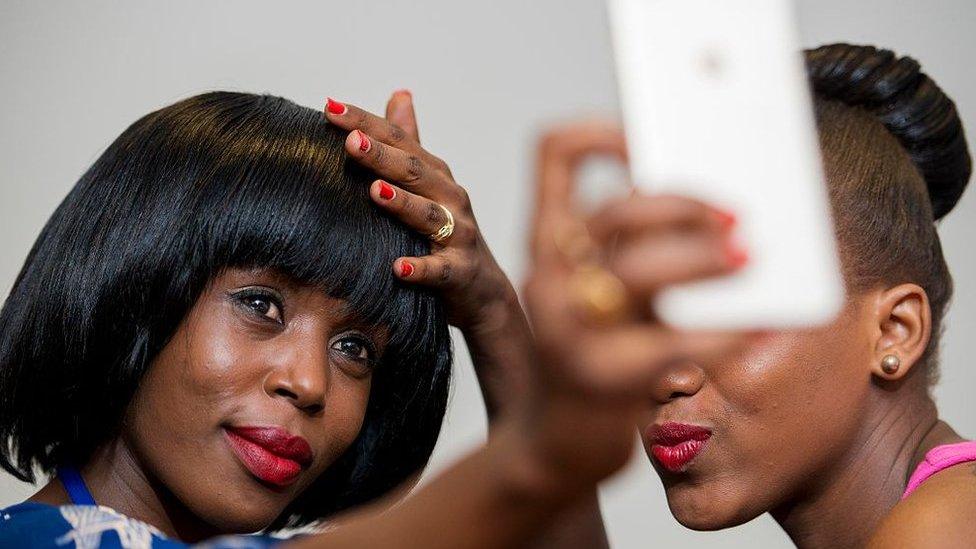Reality Check: Taxing 'gossip' on the internet
- Published
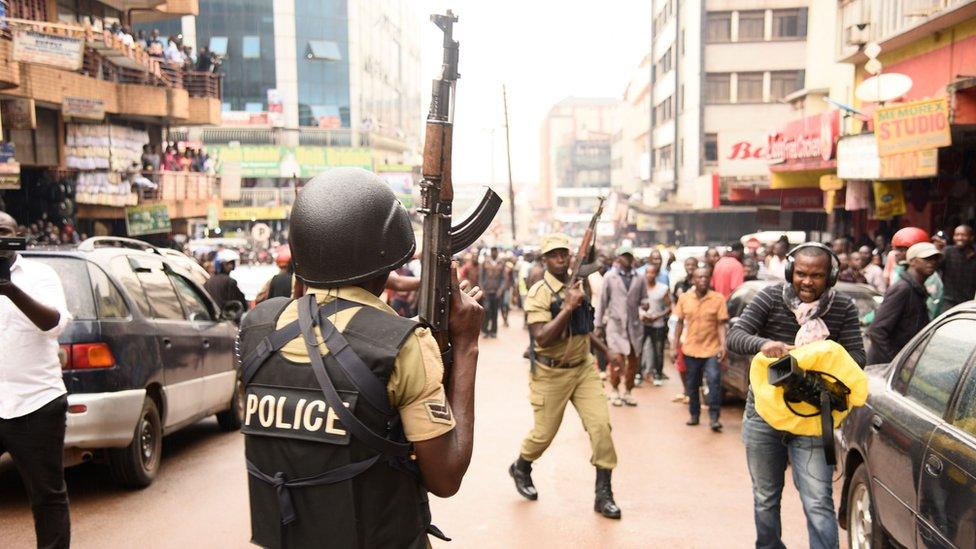
The tax proved unpopular with internet users in Uganda, some of whom took to the streets to protest
Claim: Ugandan President Yoweri Museveni's decision to impose a tax on "gossip" on social media has led to drop in usage.
Verdict: The tax has had a negative impact on access to social media and is proving deeply unpopular with internet users in Uganda.
At the beginning of July, President Museveni pushed through a controversial tax on social media, dismissing it as unwanted and potentially damaging gossip. Many Ugandans woke up to find social media sites blocked.
But following widespread anger and street protests, the government announced it was reviewing the decision., leaving a degree of uncertainty about the immediate future.
Some activists believe that President Museveni views social media as a potential threat to his 32-year rule.
Tax on messaging apps
The tax means that Ugandans using social media pay 200 Ugandan shillings (5 US cents or 4p) per day to their service providers for access to restricted sites.
A list of 58 websites, apps and voice-calling platforms, including WhatsApp, Facebook, Twitter and Skype, are behind this pay wall.
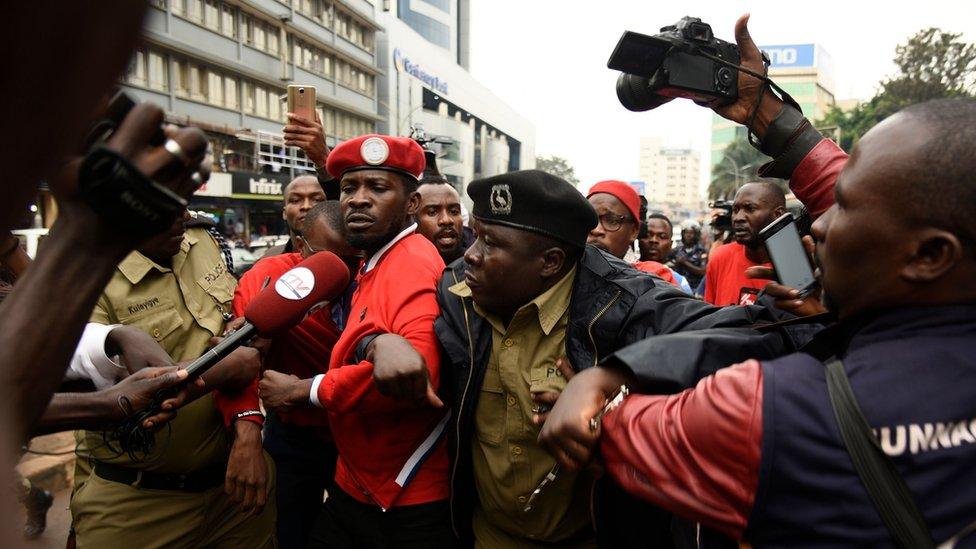
High-profile campaigner Bobi Wine (in red) was arrested during protests against the tax
Messaging platforms are popular with Ugandans and provide an important communication tool for businesses and local traders.
But President Museveni, who has been in power since 1986, says social media is a "luxury" and the Finance Minister, David Bahati, says the legislation has been implemented to raise funds for public services.
The Ugandan government has periodically blocked access to the entire internet, notably in the run-up to the elections in February 2016.
Protests against tax
Ugandan singer and independent MP Robert Kyagulanyi - better known on Twitter as Bobi Wine - was one of the leading protesters against the move, under the banner #ThisTaxMustGo.
Ugandan journalist and activist Lydia Namubiru told the BBC: "Young people are involved a lot in political speech online, and that political speech is gaining traction and even being translated into action on the street - and Bobi Wine is one example."
Allow X content?
This article contains content provided by X. We ask for your permission before anything is loaded, as they may be using cookies and other technologies. You may want to read X’s cookie policy, external and privacy policy, external before accepting. To view this content choose ‘accept and continue’.
So does the social media tax curb "gossip"? Well, if "gossip" means people communicating on social media, then yes, it appears to have reduced chatter.
One of the larger mobile infrastructure providers, Liquid Telecom, has reported a 75% drop in Facebook and WhatsApp usage.
"It is reasonably representative of what's happened in the market," according to Kyle Spencer of the Uganda Internet Exchange Point, a non-profit group that works to improve internet connectivity.
The BBC asked Twitter for data on the impact of the social media tax on usage, but the company declined to comment.
Some Ugandans have been trying to get round the tax by accessing social media platforms via wi-fi in places such as internet cafes.
But providers of wi-fi hotspots still have to pay the tax or add it to their monthly invoice in order to allow users to access social media.
Getting around restrictions
Not everyone is paying the tax. More tech-savvy Ugandans have been using virtual private network (VPN) apps, which enable them to bypass internet service providers in their country.
"VPN utilisation is hard to measure, but the data I have seen indicates a major increase," says Kyle Spencer.
Network operators have been ordered by the Ugandan government to block VPN apps.
Many Ugandans use social media apps as their sole means of accessing the internet. People buy popular social media bundles and the tax is now slapped on these packages.
One effect of the tax could be to price out many Ugandans on low wages.
The country has one of the lowest per-capita incomes in the world - $604 a year - and a 5 cents daily rate (equivalent to $1.50 per month), a substantial sum for average citizens.
Allow X content?
This article contains content provided by X. We ask for your permission before anything is loaded, as they may be using cookies and other technologies. You may want to read X’s cookie policy, external and privacy policy, external before accepting. To view this content choose ‘accept and continue’.
The new tax could increase the cost of internet access for Uganda's poorest citizens by 10%, says CIPESA, external, a body which supports the use of internet technology in development and poverty reduction.
It says 1GB of data costs up to 40% of average monthly income for the poorest, while for wealthy Ugandans it is obviously a much smaller burden.
The wider picture
Uganda isn't the only African country to implement some form of internet restriction.
The US-based group Freedom House, external, which monitors global censorship, looked at a group of African countries between 2016 and 2017.
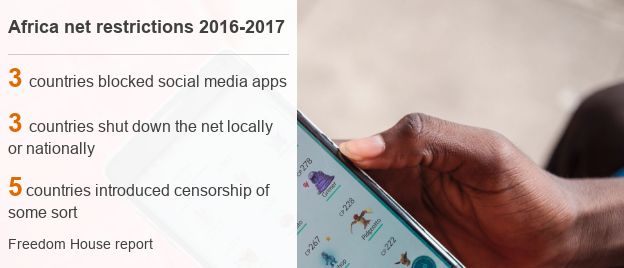
Its data shows Ethiopia, The Gambia and Zimbabwe have blocked social media apps, three more have shut down the internet either locally or nationally, and five countries have introduced laws increasing censorship.
It says Ethiopia is the worst offender, blocking Facebook, Twitter and WhatsApp, shutting down the internet during anti-government protests and passing laws criminalising an array of online activities.
Africa has the lowest levels of internet use in the world at 22%, but is experiencing the fastest growth in internet users anywhere in the world - currently increasing by 20% per year.



- Published16 May 2018
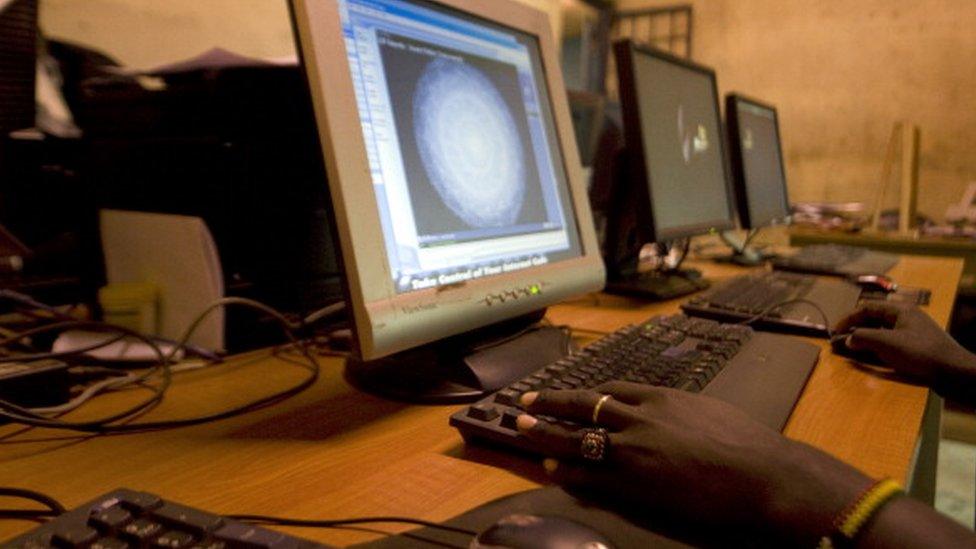
- Published15 July 2018
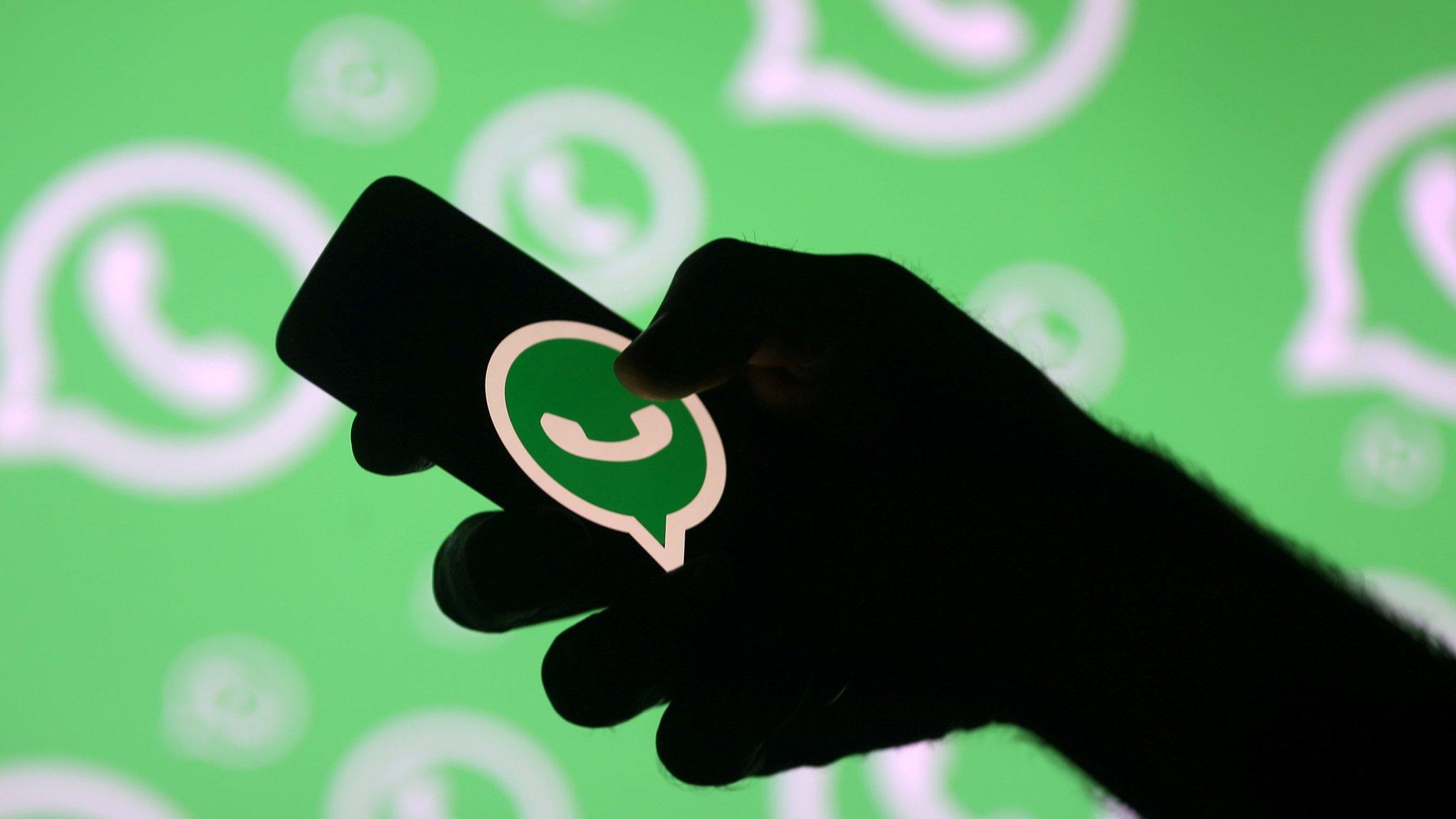
- Published16 January 2018
